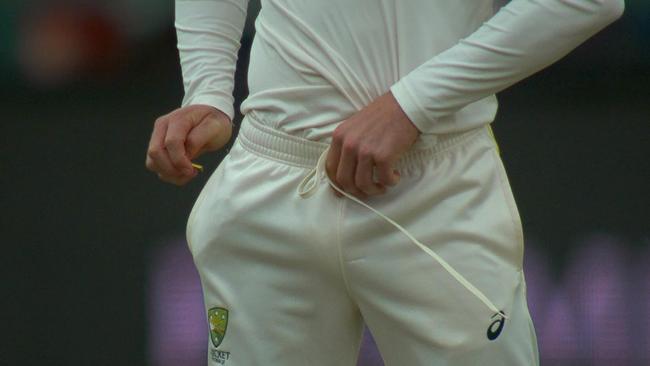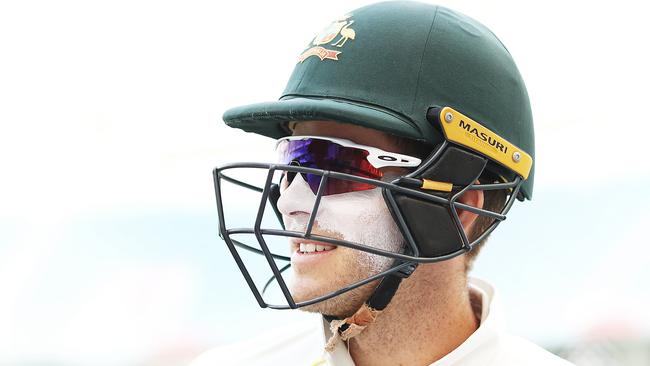Post 'sandpapergate', winning not enough for Australian cricket team
After the ‘sandpapergate’ scandal, character, not cricket, is Australia’s big Test. Can Australia recover as quickly as Volkswagen?

OPINION
Engulfed in the emissions crisis two years ago, Volkswagen’s share price collapsed. The chief executive was fired and the company faced costly litigation and a host of damaging lawsuits, estimated to be in the region of $80 billion. Fears were expressed that the company would not survive: as one PR expert wrote at the time, it could be “auf wiedersehen for good”.
Even if you had bought the stock shortly before the crisis, you would now be sitting pretty. The company has proved to be remarkably resilient: profitability is up; car sales have risen over 5 per cent in the United States, more in China, and the company has earmarked eye-watering amounts for electrification and self-driving technology. It is striding confidently into the future.
A report in the Financial Times in January, reflecting on the group’s most recent balance sheet compared to that of before the scandal, stated that there was “no discernible evidence that the company experienced difficulty in between, let along the biggest calamity in its eight-decade history”. In February this year VW was crowned the biggest car manufacturer in the world, overtaking Toyota.
The same analysts who predicted Armageddon for the company now turned their attentions to why it recovered so quickly. Theories included its decisive action (the swiftly-sacked chief executive), its declaration of regret, the internal changes that reflected on a company determined not to waste a crisis, and so on.
Few alighted on the obvious: the company continued to make good, reliable cars. As someone who drives a crappy, ten-year-old Golf that has not yet let me down, I should know.
'Sandpapergate' ‘fiasco’
One writer to do so was Ian Leslie in the New Statesman magazine. Reviewing a book called
The Reputation Game, he highlighted the distinction between two types of reputational damage: that of competence and that of character. For a brand like Volkswagen, said Leslie, a reputation for capability trumps one of character. In the end, people don’t really care about a moral dimension when buying a car — they want to get from A to B securely, safely and reliably.
In the FT, Andrew Hill was the first to make the comparison between corporate failures, such as the Volkswagen scandal, and the Australian cricket team’s “sandpapergate” fiasco in Cape Town in March.
In the failings of Steve Smith’s leadership, he highlighted a tendency to “group think” and the sacrifice of a junior officer.
He likened the pressure put on Cameron Bancroft — the youngest player sent to do the shittiest deed — with that of Oliver Schmidt of Volkswagen, who complained after the event of feeling “misused by my own company”.
The Cape Town episode seems destined to be a case study in what can go wrong in organisations — there are two books recently published on that very theme — but what about the repercussions? Can Australia recover as quickly as Volkswagen?
Competence versus character
Back to Leslie’s distinction: a national cricket team is not a brand, nor a business (as much as administrators mistakenly may think so). People feel differently about their cricket team than they do about buying a car. They care about competency, for sure, but they also care about character.
Australia are back in the Test arena this week for the first time since they were sent packing in South Africa — the vast swathes of empty seats is not a reflection on them, rather the UAE, where the series against Pakistan is being played — and Bancroft made his comeback in Western Australia, following Smith and David Warner by dipping a toe into the water in grade cricket.

Unlike the Volkswagen balance sheet, there is plenty of evidence that the events in Cape Town have had a significant impact.
The team taking on Pakistan, scrapping gamely at the end of day four at the time of writing, has just six survivors from Cape Town: Nathan Lyon, Mitchell Starc, Usman Khawaja, the brothers Shaun and Mitchell Marsh and the new captain Tim Paine, supported by not one but two vice-captains, who, in a departure from the past, have been selected, like the editor of The Guardian, by their peers.
‘Toxic win-at-all-costs mentality’
For as long as I can remember, Australian teams always had an unshakeable belief that the Australian way, in coaching, captaincy, systems and style of cricket, was the right way, the only way — something they were always keen to preach to others. In the aftermath of the hostile public reaction to events in Cape Town, the powers that be have realised the significance of character reputation as well as capability and competence. The players have been told that they must buy into a cultural shift designed to rid the team of a toxic win-at-all-costs mentality.
To some former players, the change is a chafing one. Allan Border, architect of Australia’s renewal post-Kerry Packer, wants “tough, uncompromising cricket” in “the Australian way”. Shane Warne’s recently released autobiography leaves the reader in no doubt: “This group of players need to find themselves again … the best way to win back trust and popularity is by playing the Aussie way, and if that means some confrontation in the thick of battle, so be it. It’s an international stage they are playing on, not the village green.”
But Paine and the new coach Justin Langer have not been looking to past glories, or looking inwardly, but have been craning their necks beyond immediate horizons.
Both, along with the outgoing chief executive James Sutherland and the high-performance chief Pat Howard, recently spent profitable time in the US, checking out successful franchises such as the Dallas Cowboys and the Chicago Cubs. On his return, Paine questioned the well-trodden path taken in Australia (and elsewhere) from top-flight playing to coaching, inferring that there were lessons to be learnt.
In the boardroom, meanwhile, they don’t seem quite sure whether they want to make a fresh start or not. Sutherland, the longstanding chief executive, stepped down recently. His replacement? Kevin Roberts, the man occupying the office next door. Key appointments such as Roberts and Langer have been made before two external reports on the culture and ethics have landed. They have jumped the gun.
Taking on Pakistan in the UAE is no straightforward task for any team, and then comes India’s visit to Australia. Recently, I read an Australian journalist describe the forthcoming summer down under as an interesting one of — I thought he was going to write “cricket” but instead I read —- “cultural change”, a phrase that encapsulates the sense that things are not quite so straightforward as they once were. Results are not the only thing that matters. Clearly, Paine’s remit is a broad one. There is not just the historic and heavy expectation that every Australia captain feels to win, but also the requirement to win back respect. He looks the part and talks the part but, as a wicketkeeper trying to hold down a place in the side, and as a captain trying to help restore a team’s reputation, he has an unenviable task.
— The Times



